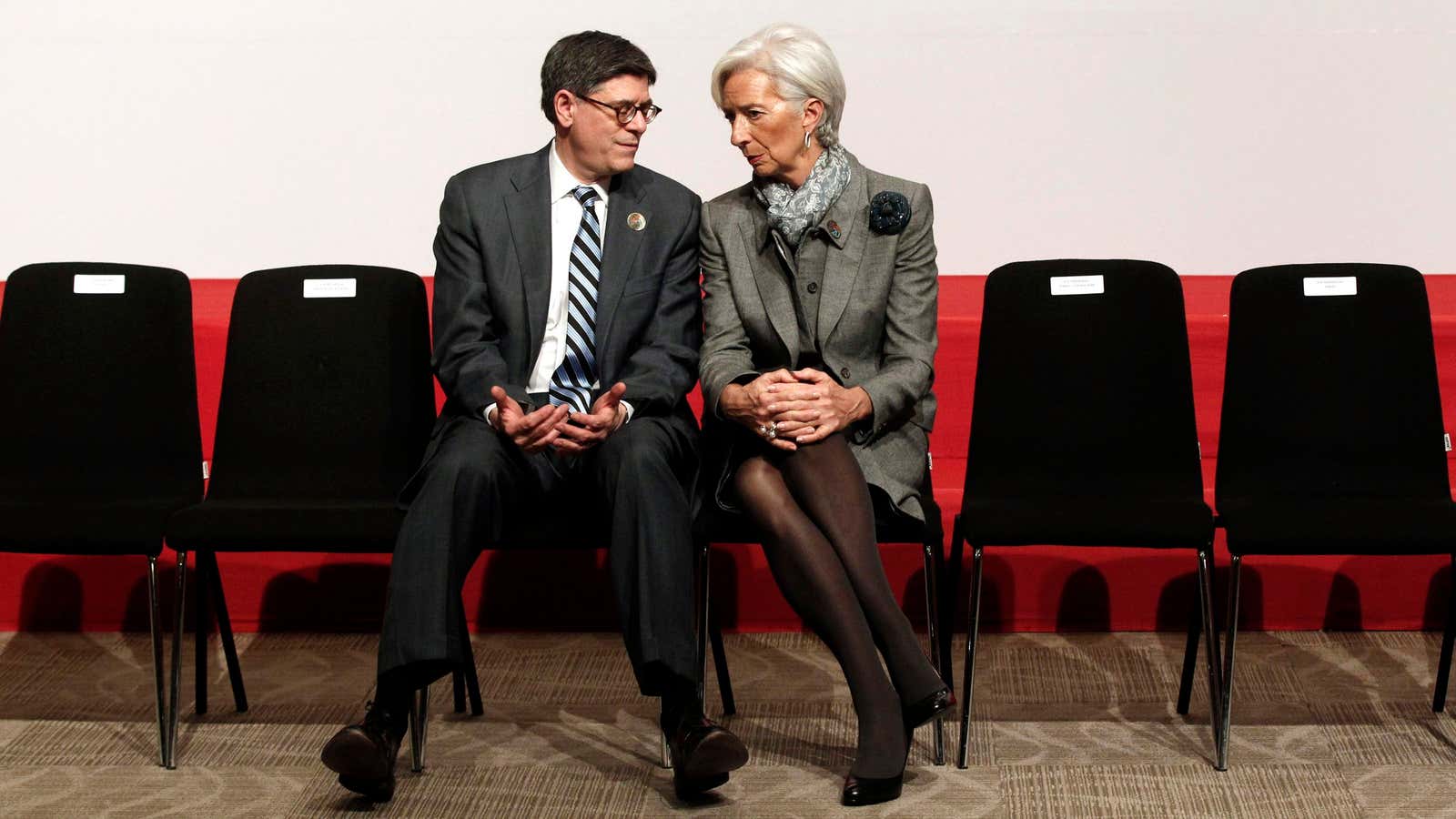At a meeting of the top global economic institutions, US Treasury secretary Jack Lew warned a number of countries, including close US allies, that they are freeloading too much off of America’s growing economy.
“We are concerned that the global economy is reverting to the pre-crisis pattern of heavy reliance on US demand for growth,” Lew said in his remarks at the International Monetary Fund’s annual governance meeting. “Significantly, economies projected to record rising current account surpluses, including Korea, Germany, China, and Japan, should move expeditiously to pursue domestic-demand boosting policies.”
Lew’s remarks echo concerns from former Federal Reserve chairman Ben Bernanke, among others, that US interest rates are being held down by global financial flows from countries that artificially boost their exports through currency manipulation or low domestic spending. That is, instead of generating demand within their own countries to generate growth in production and consumption, they are taking advantage of demand—and reducing potential growth—in other countries, like the US. In an ideal system, trade and capital flows would balance out. (In the real world, of course, things don’t always work out that way.)
The IMF may not be so inclined to help heed Lew’s call, having recently argued that slow growth worldwide has less to do with global imbalances than a lack of investment in slow-growing countries themselves. And Lew may have less clout to make his case than once he did, since the US remains one of the few countries to ratify proposed IMF reforms intended to better balance the voice of emerging markets with that of the 20th century’s economic powerhouses. That reluctance, contrasted with the founding of the Asian Infrastructure Investment Bank by China, has raised questions about US economic leadership even as the Obama administration is fighting to enact a trade deal in the Pacific that aims to set international standards for the 21st century.
Lew’s drumbeat of criticism of Germany, Korea, and Japan underscores US concerns about the international system—and, more recently, its displeasure with Germany and Korea’s decision to participate in the AIIB. (The US isn’t thrilled with China either, but its expectations of cooperation are arguably different for countries long considered economic allies.)
Lew’s address to the IMF alluded to the global financial system’s changing institutional framework—and his challenge in convincing a Republican Congress that IMF reform is a good thing.
“Even as new institutions emerge, I would like to underscore that the IMF remains the foremost international institution for promoting global economic stability,” he said. “Let me reiterate that we remain strongly committed to the IMF as a quota-based institution. We are committed to securing legislation to implement the 2010 quota and governance reforms. … We continue to believe that Congress will soon pass legislation to implement the 2010 reforms, which are critical to US economic and national security and global economic stability.”
The spring meetings of the IMF and World Bank run through April 19, in Washington.
